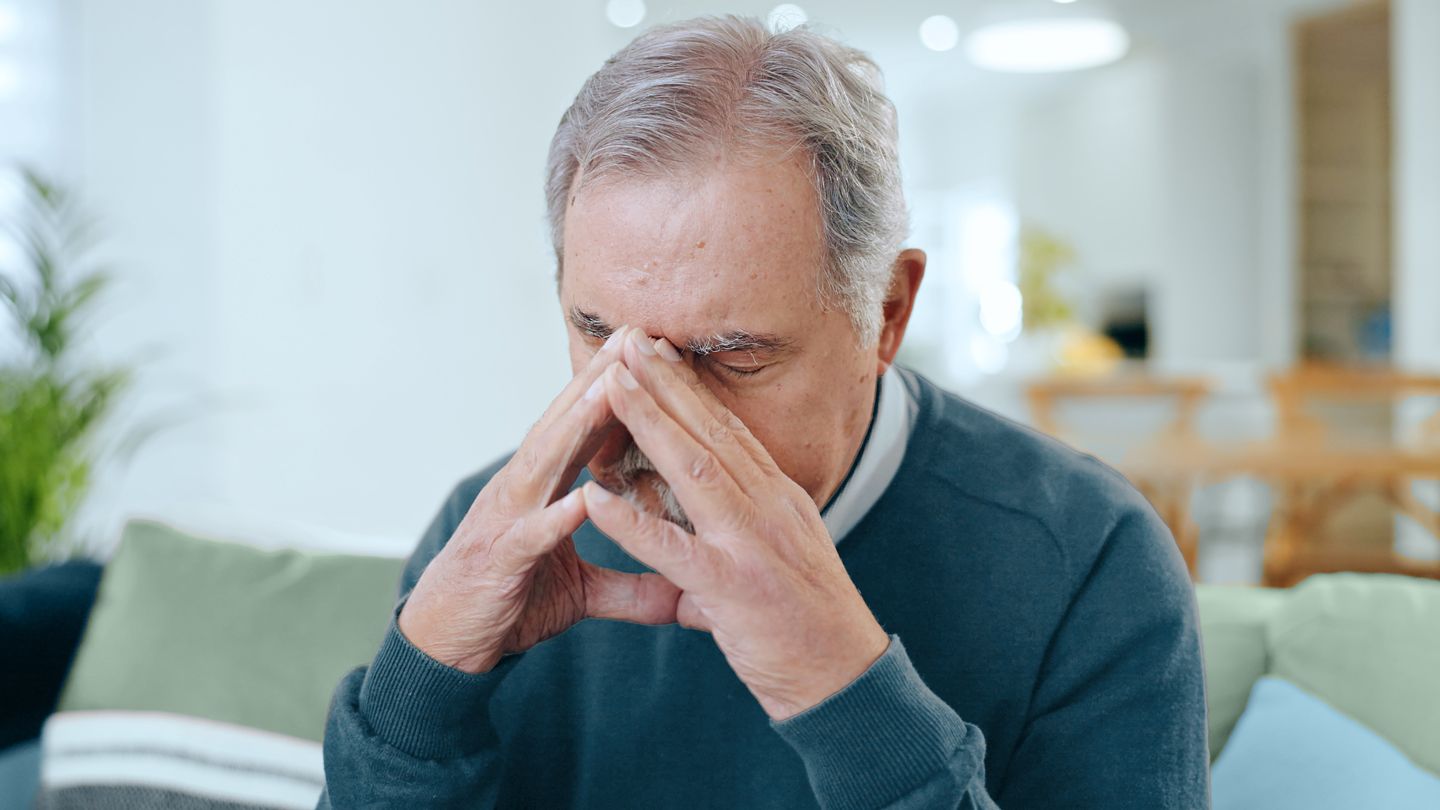Many people with prostate cancer experience fatigue as a symptom of the cancer and as a side effect of treatment. In fact, up to 90 percent of men with prostate cancer experience fatigue.
Here, Joseph Renzulli, MD, an associate professor of urology at Yale School of Medicine, in New Haven, Connecticut, answers common questions about cancer-related fatigue, including what people with advanced prostate cancer can do to feel stronger and more energized.
Editor’s note: This interview has been edited for length and clarity.
Everyday Health: How does fatigue from advanced prostate cancer differ from general fatigue?
Dr. Joseph Renzulli: It’s a more profound type of fatigue. When you have advanced prostate cancer, your body just can’t go any further. It’s not like you’re tired because you stayed up late. It’s an intense halt of activity by your body, because you’re so fatigued.
Think of it like wanting to work out when you’re sick: Even if you wanted to, you can’t. Fatigue from advanced prostate cancer is something you can’t simply fight through.
EH: Is fatigue caused by the cancer itself or by treatment?
It’s not quite clear why these therapies are responsible for causing fatigue, though. It may be partly due to the hormonal changes. But even so, some hormone medications, such as enzalutamide, are much more likely to cause fatigue than others. So there’s clearly a medication-related component as well.
EH: Are there medications I can take to ease fatigue?
JR: There aren’t any treatments available that can help boost your energy levels. But in some cases, your doctor may be able to lower the dosage of your cancer medications, which might help you feel less fatigued. The key word is “might,” though. Oftentimes, patients don’t experience much of a benefit from the change.
EH: Are there any lifestyle changes I can make?
JR: It sounds counterintuitive, but the number one thing you can do to fight fatigue if you have advanced prostate cancer is to exercise. When you work out, you actually get that energy back.
EH: Does my diet play a role in causing cancer-related fatigue?
EH: I also have anemia. Is that contributing to my fatigue?
EH: Can fatigue linger even after my treatment is over?
JR: It might, but that’s mainly caused by a lack of testosterone in the body, not any lingering effects from the treatment. In fact, you may continue to feel fatigued until your testosterone production ramps back up again, which could take about a year. That said, for about 20 percent of men over the age of 70, testosterone production will never reach the levels it did before starting ADT, even after stopping the medication.
EH: How important is it to tell my cancer care team about my fatigue?
JR: You shouldn’t hesitate to tell your care team about your symptoms, including any fatigue you might by feeling. A lot of people I treat think that because they have cancer, the fatigue isn’t that bad in comparison. But there are other people I treat who are so fatigued, they can’t even function. It’s a spectrum. It affects a lot of people differently.
The Takeaway
- Up to 90 percent of people with advanced prostate cancer will experience fatigue. It’s not just a feeling of tiredness, but also a more profound lack of energy.
- While fatigue can be caused by the cancer itself, it’s mainly a side effect of the treatments for advanced prostate cancer, including hormonal therapies such as androgen deprivation therapy.
- It may seem counterintuitive, but exercise is one of the best ways to boost your energy levels and combat cancer-related fatigue.
Read the full article here




